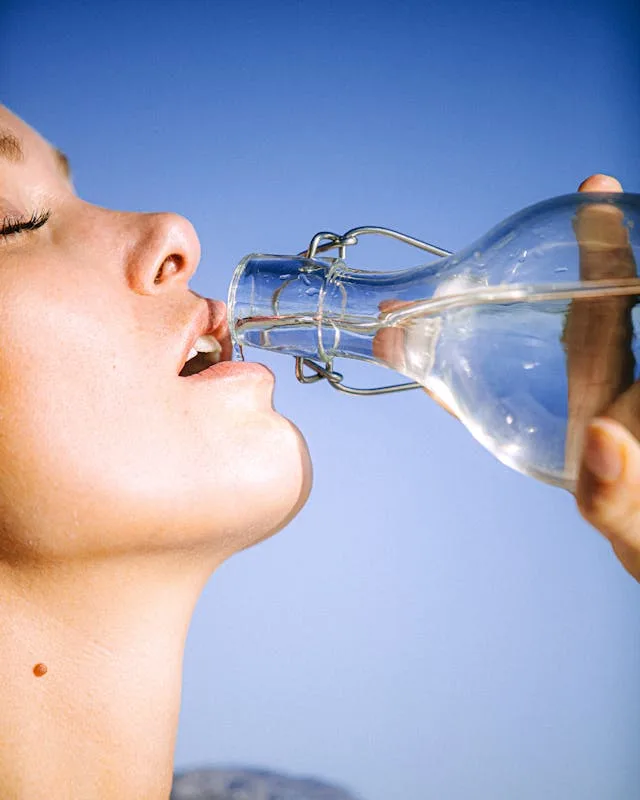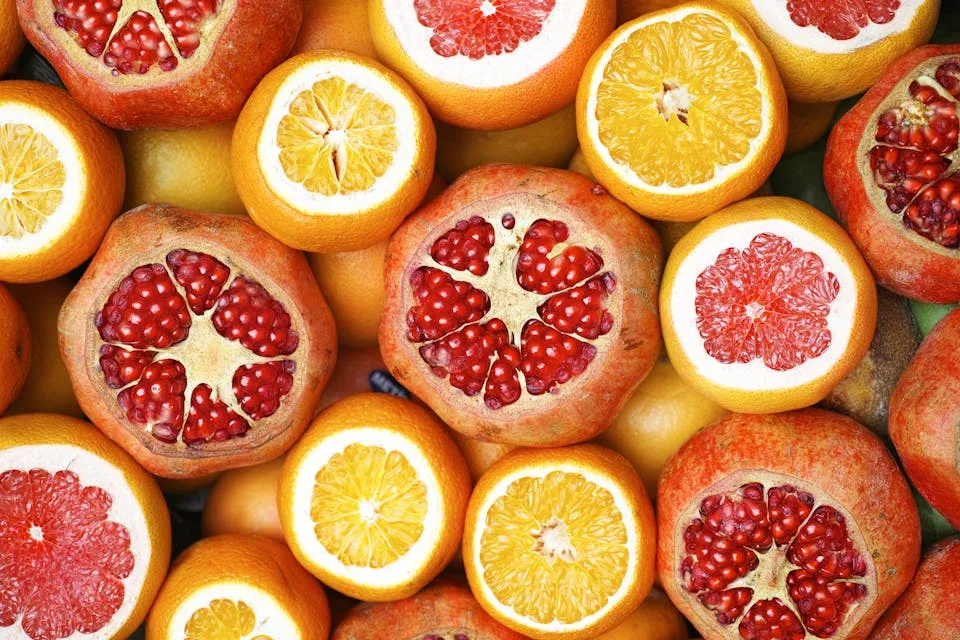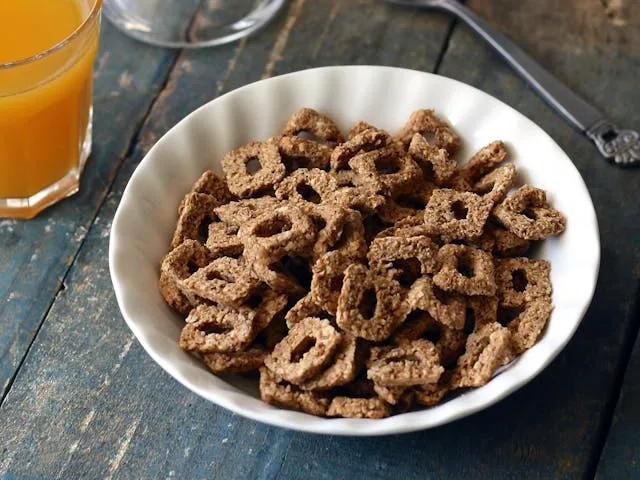Everyone desires beauty, especially women who seek soft, supple, glowing skin. Many women spend a lot of time and money on beauty treatments and skincare products but often overlook the most basic and crucial aspect: diet. Yes, even healthy skin relies on a proper diet. Here are some key dietary factors related to good skin, and how you can improve your skin condition through what you eat and drink.
Beauty Food: Water

Hydrate for Dewy Skin
As we age, our body’s water content gradually decreases. When the water content decreases, wrinkles start to appear, signaling the onset of aging. Drinking plenty of water daily helps to keep the skin hydrated. The water you drink circulates through your body via the bloodstream, replenishing the entire body’s fluids, including skin cells. Sufficient hydration helps transport water directly to skin cells.
Beauty Food: Collagen-Rich Foods

Boost Collagen for Elastic Skin
Collagen Reduces Wrinkles and Increases Skin Elasticity: Collagen is well-known for its benefits to skin health, including reducing visible wrinkles and dryness and increasing skin elasticity. Collagen-rich foods and supplements not only directly provide collagen but also promote the production of other skin proteins like fibrillin and elastin.
Post-Menopause Collagen Loss: Research shows that the collagen content in the human body peaks at around age 20 and declines afterward, decreasing by about 1000 grams every 10 years. Notably, women may lose up to 30% of their collagen within the first five years after menopause due to hormonal changes.
Low Absorption of Collagen from Regular Foods: While a balanced diet is essential, collagen from regular foods is often large-molecule proteins with low absorption rates. These large-molecule proteins are mostly filtered out by the body, leaving only a minimal amount to benefit the skin. Additionally, many collagen-rich foods are high in fat, potentially leading to weight gain.
Foods rich in quality proteins include meats, legumes, eggs, and dairy products.
Beauty Food: Vitamin-Rich Foods

Vitamin for Radiant Skin
A study published in the Journal of Cosmetic Science in December 2001 highlighted the importance of vitamin C in collagen formation. Collagen is a fibrous protein rich in hydroxyproline and hydroxylysine, which are formed by the hydroxylation of proline and lysine, processes activated by vitamin C. This promotes the transformation of proline and lysine into hydroxyproline and hydroxylysine, aiding collagen formation.
Vitamin C is essential in collagen synthesis, increasing tissue collagen content and protecting capillary and muscle fiber membranes, smoothing skin texture. It also neutralizes free radicals, enhancing the skin’s antioxidant capacity and improving skin brightness.
Foods rich in vitamin C include fresh vegetables and fruits like bell peppers, jujubes, kiwis, tomatoes, and strawberries.
Vitamin A for Smoother Skin
Vitamin A deficiency can lead to dry, keratinized skin. Typical symptoms of vitamin A deficiency include dryness and keratinized follicular eruptions, particularly on the backs of the upper arms and the front of the thighs, eventually spreading to the extremities, shoulders, and lower abdomen.
Rich sources of vitamin A include animal liver, fish liver oil, whole milk, and egg yolks. Plant-based foods contain beta-carotene, which can be converted into vitamin A in the body, but its absorption and conversion rates are relatively low.
Beauty Food: Fiber and Probiotic-Rich Foods

Fiber and Probiotics for Clear Skin
Studies have shown that probiotics and prebiotics improve skin health and can prevent and alleviate skin-related conditions such as atopic dermatitis, acne, psoriasis, skin damage, and photoaging.
Foods rich in dietary fiber include whole grains, fruits, and vegetables. Probiotic-rich foods include fermented products like kimchi, natto, miso, and fermented beans.
Maintaining balanced nutrition is essential for healthy skin. While purchasing nutritional supplements from wellness stores can help, adjusting your daily diet and habits can naturally provide these benefits, saving you money on your next wellness store trip.
References:
- (1) Water | The Nutrition Source | Harvard T.H. Chan School of Public Health. https://www.hsph.harvard.edu/nutritionsource/water/.
- (2) How much water should I drink a day? – Harvard Health. https://www.health.harvard.edu/staying-healthy/how-much-water-should-you-drink.
- (3) The Nutrition Source – Harvard T.H. Chan School of Public Health. https://www.hsph.harvard.edu/nutritionsource/collagen/.
- (4) Considering collagen drinks and supplements? – Harvard Health. https://www.health.harvard.edu/blog/considering-collagen-drinks-and-supplements-202304122911.
- (5) Vitamin C | Linus Pauling Institute | Oregon State University. https://lpi.oregonstate.edu/mic/vitamins/vitamin-C.
- (6) Vitamin A and Skin Health | Linus Pauling Institute | Oregon State University. https://lpi.oregonstate.edu/mic/health-disease/skin-health/vitamin-A.
- (7) Vitamin A | The Nutrition Source | Harvard T.H. Chan School of Public Health. https://www.hsph.harvard.edu/nutritionsource/vitamin-a/.
- (8) Probiotics: What You Need To Know | NCCIH – National Center for Complementary and Integrative Health. https://www.nccih.nih.gov/health/probiotics-what-you-need-to-know.
- (9) Fiber | Linus Pauling Institute | Oregon State University. https://lpi.oregonstate.edu/mic/other-nutrients/fiber.
- (10) Vitamin C – Health Professional Fact Sheet – Office of Dietary Supplements (ODS). https://ods.od.nih.gov/factsheets/VitaminC-HealthProfessional/.
- (11) Vitamin A and Carotenoids – Consumer – Office of Dietary Supplements (ODS). https://ods.od.nih.gov/factsheets/VitaminA-Consumer/.
- (12) Probiotics – Health Professional Fact Sheet – Office of Dietary Supplements (ODS). https://ods.od.nih.gov/factsheets/Probiotics-HealthProfessional/.
- (13) Skin Health | Linus Pauling Institute | Oregon State University. https://lpi.oregonstate.edu/mic/health-disease/skin-health.
Disclaimer:
The information in this article is for general information sharing purposes only. It is not a substitute for personalized medical or dietary advice. For personal health concerns and dietary needs, consult a qualified health care provider or dietitian.

